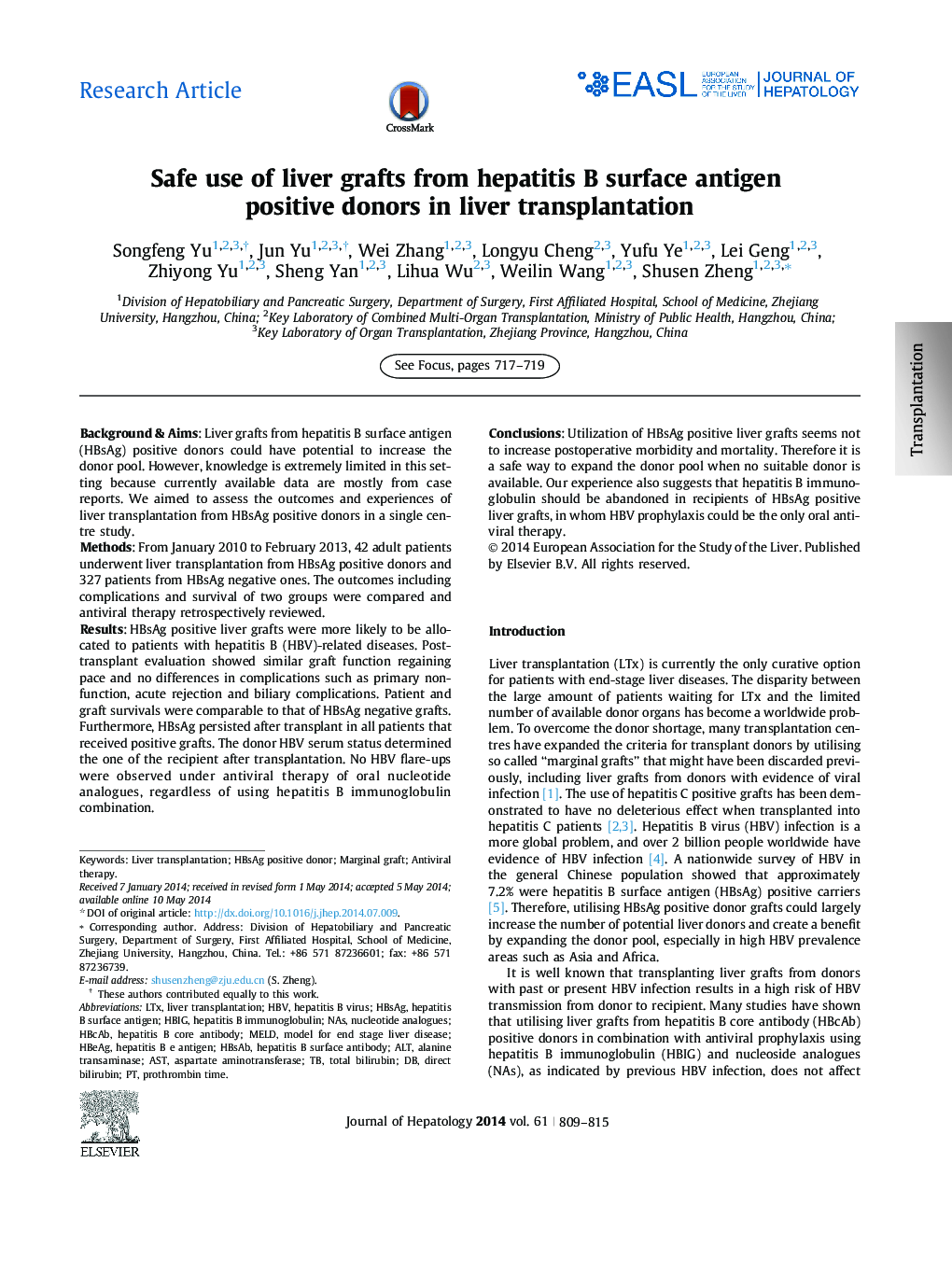| Article ID | Journal | Published Year | Pages | File Type |
|---|---|---|---|---|
| 6102694 | Journal of Hepatology | 2014 | 7 Pages |
Background & AimsLiver grafts from hepatitis B surface antigen (HBsAg) positive donors could have potential to increase the donor pool. However, knowledge is extremely limited in this setting because currently available data are mostly from case reports. We aimed to assess the outcomes and experiences of liver transplantation from HBsAg positive donors in a single centre study.MethodsFrom January 2010 to February 2013, 42 adult patients underwent liver transplantation from HBsAg positive donors and 327 patients from HBsAg negative ones. The outcomes including complications and survival of two groups were compared and antiviral therapy retrospectively reviewed.ResultsHBsAg positive liver grafts were more likely to be allocated to patients with hepatitis B (HBV)-related diseases. Post-transplant evaluation showed similar graft function regaining pace and no differences in complications such as primary non-function, acute rejection and biliary complications. Patient and graft survivals were comparable to that of HBsAg negative grafts. Furthermore, HBsAg persisted after transplant in all patients that received positive grafts. The donor HBV serum status determined the one of the recipient after transplantation. No HBV flare-ups were observed under antiviral therapy of oral nucleotide analogues, regardless of using hepatitis B immunoglobulin combination.ConclusionsUtilization of HBsAg positive liver grafts seems not to increase postoperative morbidity and mortality. Therefore it is a safe way to expand the donor pool when no suitable donor is available. Our experience also suggests that hepatitis B immunoglobulin should be abandoned in recipients of HBsAg positive liver grafts, in whom HBV prophylaxis could be the only oral antiviral therapy.
